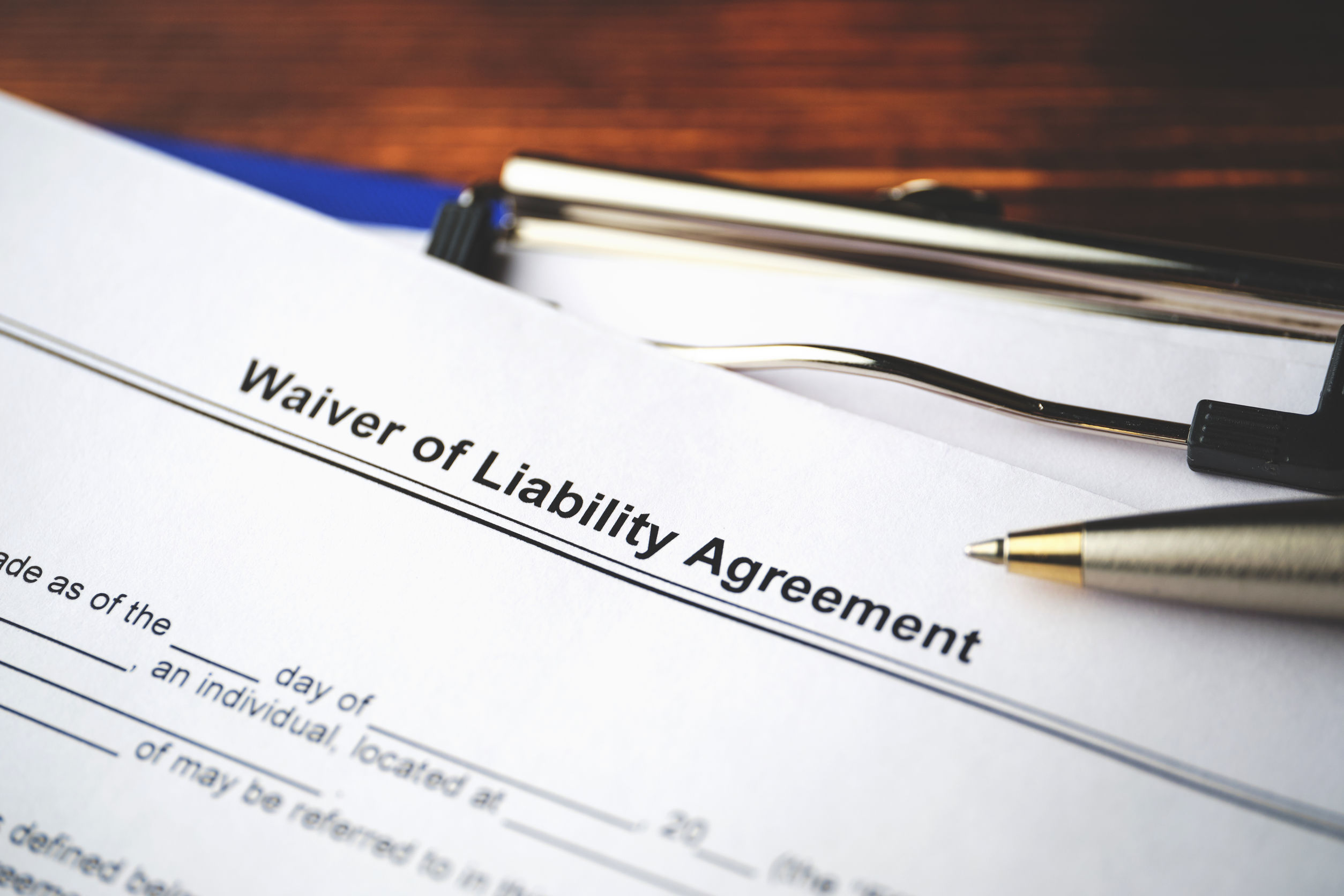 Many businesses, organizations, and sporting events require people to sign liability waivers to help avoid personal injury lawsuits.
Many businesses, organizations, and sporting events require people to sign liability waivers to help avoid personal injury lawsuits.
Signed liability forms are often required when an activity or service carries a certain amount of risk. The purpose is to release the organization from legal liabilities due to injuries incurred on their property, through a provided service or sponsored event.
Who Requires Liability Waivers?
Typically, liability waivers are required by:
- Gyms and recreational activity businesses such as indoor climbing, roller rinks and trampoline parks
- Shooting ranges
- Sport leagues or lessons
- Sporting events like motorsport races
- Risky activities like sky diving, skiing and bungee jumping
- Equipment and vehicle rentals
Sometimes healthcare providers and daycares may require a signed liability waiver form. A release of liability may also be requested by schools to allow your child to go on a field trip.
Do You Relinquish Your Rights to Sue When You Sign a Liability Waiver?
Not necessarily. An experienced personal injury attorney can help ascertain the validity of the waiver and possibly determine a way to overcome it.
The goal of a liability waiver is to discourage and prevent people with injuries from filing a claim. When worded correctly, a liability waiver is a contracted agreement between a person and an organization that the signee:
- Knows the risks associated with the activity, service or event
- Understands and acknowledges they may get injured
- Will not hold the organization responsible for injuries
A valid liability waiver may prevent the injured person from successfully suing an organization from seeking damages, losses and legal expenses.
How a Personal Injury Attorney May Defend Your Rights to Sue Regardless of a Signed Liability Waiver
While an injured person who signed a waiver may think they have relinquished their rights to sue, an experienced personal injury attorney may see a way to move forward with an injury claim.
According to case law in Florida, valid waivers of liability must meet the following criteria:
- Clear: Does the waiver use clear language that helps the signer understand the rights being waived and addresses all potential risks for injury?
- Unambiguous: Does the waiver describe in no uncertain terms what rights are being waived that would prevent the signee from suing the organization?
- Unequivocal: Does the waiver use clearly defined language in a way that does not allow loopholes regarding waiver of rights?
- Specific: Does the waiver clearly state what injury claims are being waived?
A liability waiver may be considered invalid in the courts based on the following:
Language of the Waiver: Is the waiver wording unclear (even slightly) or ambiguous about rights waived or how the organization would not be at-fault for specific injuries?
Location of Critical Details: Were specific details of the waiver difficult to read or hidden? For example, the font is too tiny to read (the fine print) clearly or a vital statement buried in an unrelated section of the waiver.
Negligence: Was the injury the result of gross or willful negligence? If the injury was the result of reckless, wanton, gross, or egregious negligence, the waiver may be invalid. For example, the injury was caused by slipping on oil left on the floor by an employee or caused by gym equipment not properly maintained.
Get the Legal Help You Need
Signing a liability waiver may not prevent you from filing a lawsuit if you are injured. That is why it is important to have an experienced personal injury attorney review the waiver.
If you’re currently facing a personal injury issue, we’d like to offer you legal assistance. Please don’t hesitate to reach out to Fusco Law Group at (904) 567-3113 for a free consultation.
Frequently Asked Questions Insurance Companies and Personal Injury Cases
What is a liability waiver?
A liability waiver is a legal document required by an organization to be signed by a person that they acknowledge and assume the risks of participating in an activity, service, or event. Basically, the signee voluntarily waives their rights to action (to sue the organization) in case of an injury and releases the organization from liability (responsibility of the injury).
What other terms are used for liabilities waivers?
Liability waivers can be called by various terms, including the release of liability, assumption of risk, indemnity agreement, exculpatory agreement, hold harmless agreement, participation waiver, waiver of rights, release or release form, legal release and pre-injury release.
What criteria are required for a liability waiver to be valid and enforceable in Florida?
To be valid and enforceable, liability waivers in Florida must contain language that is clearly written, unequivocal, unambiguous and specific on the risks and rights being waived by the signee.
If you signed a liability waiver in Florida, can you still sue a business if you get injured?
If you signed a liability waiver that is not clearly written or unequivocally, unambiguously and specifically states the assumed risks or rights being waived you may be able to file a lawsuit if you are injured. Additionally, if the injury resulted from gross and willful negligence, you may be able to pursue a personal injury claim.
